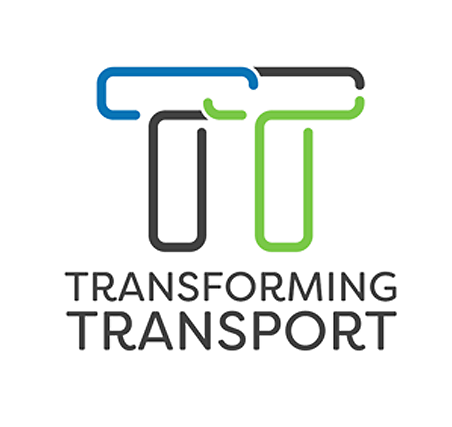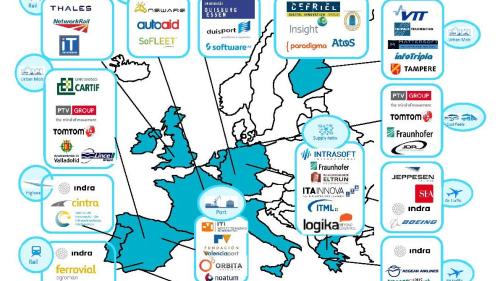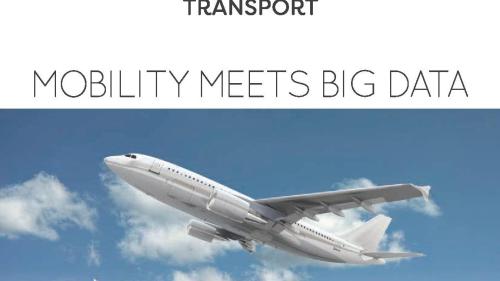
Transforming Transport is a project financed by the Horizon 2020 program whose objective has been based on demonstrating in a realistic, measurable and replicable way the transformations that Big Data brings to the mobility and logistics market.
The concept of Big Data (macro data or massive data) refers to the storage of large amounts of data and the procedures used to find repetitive patterns within that data. The management of this data makes it possible to create statistical reports, develop predictive models and, ultimately, develop new business and employment opportunities and improve services for citizens.

The impact of Big Data
Big Data accounts for approximately 15% of world GDP and will have a profound economic and social impact on mobility and logistics, one of the strategic sectors of the economy. Its application and management is expected to generate billions of dollars worldwide with time and fuel savings, and the reduction of 380 megatons of CO2 generated by the mobility and logistics industry. Transport activities are expected to increase by 40% in 2030, hence the importance of the transformation of this sector.
An efficiency improvement of 10% can lead to EU cost savings of €100 billion. Despite these overwhelming data, only 19% of logistics and mobility companies in the EU use Big Data solutions as a value-added and business process tool.

Seven areas of action
The purpose of TransformingTransport has been precisely to validate the technical and economic feasibility of Big Data to launch new transport processes and services, which significantly increase operational efficiency, offer a better customer experience and promote new business models. In its development, seven areas have been addressed, with their corresponding pilot experiences of great importance for the mobility and logistics sector in Europe:
1. Smart highways,
2. Sustainable vehicle fleets
3. Proactive railway infrastructures
4. Ports as smart logistics centers
5. Efficiency of air transport
6. Multimodal urban mobility
7. Dynamic supply chains

Tranforming Transport in Valladolid
Valladolid has developed the integrated urban mobility pilot, providing data from our city's traffic system -through the Mobility Center-, as well as data and logistics information provided by Fundación Personas.
By analyzing real data, transport patterns can be established, which in turn will be used to develop optimal mobility models, that is, the most efficient routes considering traffic, pollution, type of vehicle, delivery times, etc.
This European project is led by INDRA and made up of 47 partners of 9 nationalities. Throughout 30 months, demonstrative actions have been carried out in different countries and fields of transport and logistics. In addition to the actions on urban mobility in Valladolid, others have been developed in the field of air transport, in Greece; in Great Britain, in rail transport; in Portugal, on motorways, and in Germany, in the port logistics sector.
Key facts
PROGRAMME
TOTAL BUDGET
18.698.813 €
MUNICIPAL BUDGET
92.250 €
IMPLEMENTATION PERIOD
December 2016 – June 2019
PROJECT PARTNERS
47 partners from 9 different countries
PROJECT COORDINATOR
INDRA



